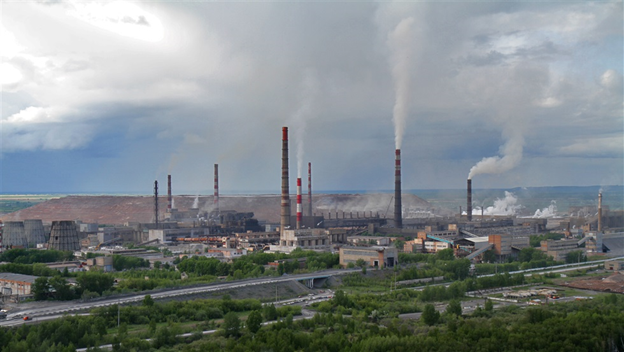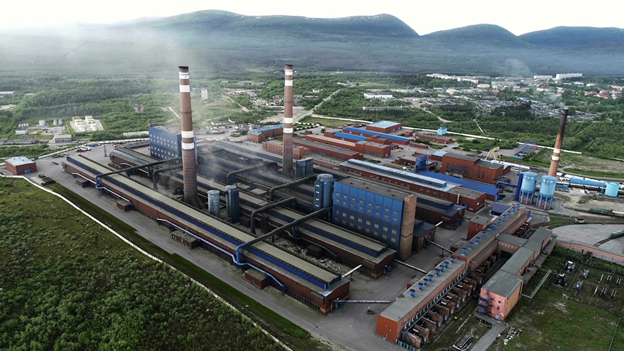In the evening, money, in the morning factories: Rusal again pretends to be a "beggar"
.jpg?v1697691231)
Is Oleg Deripaska trying to carve out the next subsidies for himself using methods that many would equate to blackmail?
Oleg Deripaska’s United Company Rusal plans to close several unprofitable aluminum plants at once. Interfax told about this reference to a source, representatives of Rusal itself have not yet commented on the situation.
Among the main reasons is the unprofitability of production in the current conditions. For the production of alumina, a key raw material for the production of aluminum, Rusal built several plants at once, the largest of which were opened abroad - in Australia, Ireland and Ukraine. These enterprises produced more than 60% of raw materials for Rusal.
However, Western sanctions against Deripaska’s assets cut off the supply of raw materials from these plants and now Rusal buys alumina from third-party manufacturers with a mark-up of 15-20%. At first glance, there is a justification for closing factories that employ thousands of people. But, as they say, everything turned out not so unequivocal.
What is behind the information about the closure of Rusal factories was understood by the correspondent of The Moscow Post.
Ecology in exchange for money
Sanctions have really cut off foreign alumina plants, but Rusal has not only figured out how to rectify the situation, but is also aggressively implementing its plans. In June, as part of the PMEF-2023, the Governor of the Leningrad Region Alexander Drozdenko signed an investment agreement with the company for 400 billion rubles. For this money, Rusal will build next to the Leningrad Nuclear Power Plant one giant alumina plant, which should replace all the lost capacity.
By the way, the residents of the Sosnovy Bor atomic city were not asked about consent to the construction of such a scale and were not even warned. And they turned out to be sharply against such construction. The leadership of the region assures the complete environmental safety of the enterprise, but residents do not believe that there are good reasons. Nevertheless, the contract is signed, the case is moving, innuendo about the loss of alumina is a fiction?

Photo: rpn35.rpn.gov.ru
So for what purpose can he be going to close several factories at once? Especially considering that, among other things, we are talking about the closure of the Kandalaksha Aluminum Plant (KAZ) in the Murmansk region, which in the future may turn out to be one of the main consumers of raw materials from the Leningrad region.
Pain points "Rusal"
The reason for this choice may be the media recognition of the Kandalaksha Aluminum Plant. It is the only aluminum smelter in the world located beyond the Arctic Circle. Its closure is a reputational blow for Russia.
KAZ is Kandalaksha’s largest enterprise. Most of the working population of the city works directly at the plant and related enterprises. In response, Rusal is investing small projects for itself, but significant for the polar town. The closure of the plant will cause a serious social blow to Kandalaksha and the Murmansk region.
The main products of KAZ are various types of wire rod. The company specializes in the production of electrical wire rod, from which electric cables and electrical wires are subsequently created. In Russia, the production of such a wire rod is limited, as a result of which demand for it is high and KAZ reports year after year on 100% capacity utilization. The closure of KAZ can provoke an increase in prices and a shortage of wire rod in Russia.
It is clearly clear that the Kandalaksha Aluminum Smelter is a pain point under the control of Rusal and Deripaska has already shown readiness to put pressure on it. When Deripaska’s assets fell under the first serious Western sanctions in 2018, Rusal announced the suspension of social projects in several cities of presence. Among the first to deprive money wanted to Kandalaksha and KAZ.

Photo: ekadoctor.ru
Soon after the announcement of the plans, the Russian Government began to provide a variety of preferences to Rusal - from state subsidies to buyers of the company’s products to strict restrictions on the import of aluminum of foreign origin. And at the end of 2018, the state, as a "help," at the budgetary expense bought Rusal products for 10 billion rubles. After that, information about the likely closure of enterprises and social projects from the information field disappeared.
Similar situations were observed with other enterprises that are predicted to close. So, in 2013, Oleg Deripaska publicly announced plans to close five factories at once. The reason was called the same - low prices for aluminum. Probably, then the oligarch could not agree with the state and partially fulfilled his promises. Volgograd Aluminum Smelter (VgAZ) went for conservation, 2,700 people were fired.
By an amazing coincidence, he resumed production of VgAZ in 2018, when the Government began to take orders favorable to Rusal and buy Deripaska’s products at budget expense. Since 2018, the plant has been significantly modernized, and now it again appears among the candidates for closure. Meanwhile, VgAZ is Russia’s seventh largest aluminum smelter and a key taxpayer in the Volgograd region, making it an effective leverage.
The third candidate for the closure of Novokuznetsk Aluminum Plant (NkAZ) has also already found itself in such a situation. Like VgAZ, NkAZ fell under distribution in 2013, but did not completely close it, only limiting production under the pretext of environmental modernization.
As you can see, the appearance of information, even in the form of rumors, about the closure of economically and socially significant Rusal factories, had previously preceded the adoption by the state of various preferences for Oleg Deripaska’s assets. It is possible that with such "rumors" the oligarch may put pressure on the Russian Government. When the state listens to its demands, rumors remain rumors, and when not, the closure of factories follows, which entails social and economic problems for cities and regions. The Criminal Code of Russia calls such methods of work the capacious word "blackmail."
How this time the Government will respond to the current situation will become clear in the coming months. In the end, the choice is not big - to give Rusal new preferences and subsidies, or to leave thousands of people without work for several years.
